An accountability partner in surface design is someone who supports you and helps you stay on track. Starting such a relationship in your business can have many benefits. I began my current accountability partnership in December 2021 and I can only encourage you to give it a shot yourself. Here are my two cents about how to find one and why.
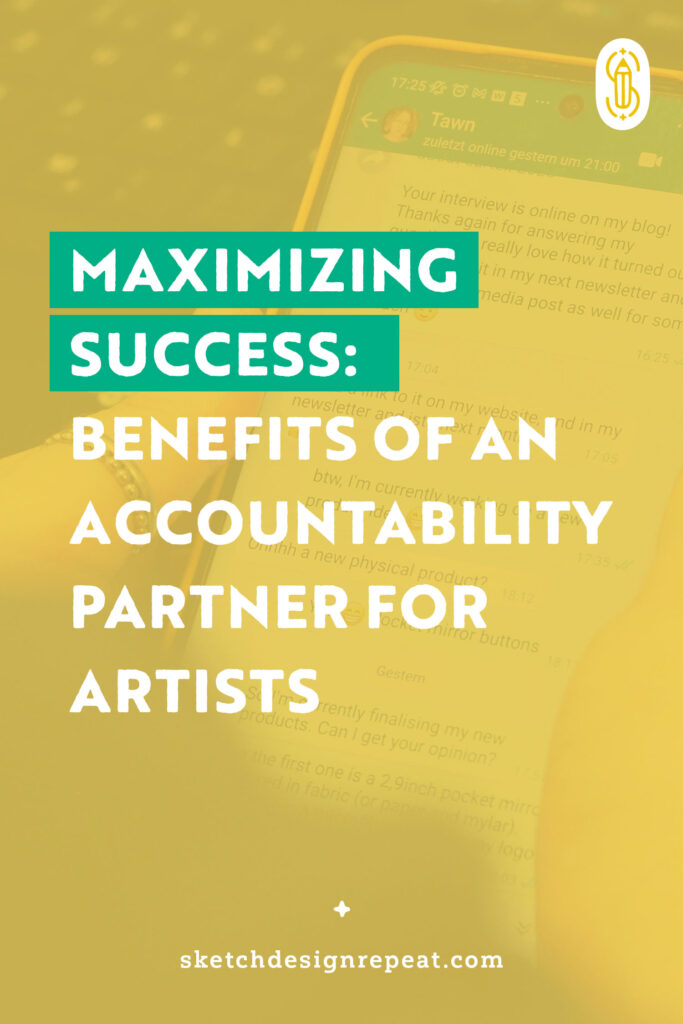
Benefits of having an accountability partner
Commitment and responsibility
Sharing your plans with someone else makes them real because another person now knows about your goals. You can also stay accountable by telling people other than an accountability partner, such as your family or your social media followers. But the benefit of having one person is that you can confide in them and bounce ideas off of each other. Also, if things get hard, your partner will be there to talk to.
Be your best version
What I love about having an accountability partner is that you’ll have a friendly “rivalry” going on. You don’t want to fall behind and measure yourself to your partner to become your best version. But never ever talk down to each other! Thinking of them this way helps you stay on track and focused. Looking at their work makes you want to work harder yourself. You can compare your social media followers, your homepage aesthetics, and wins. This way you inspire each other to show up as your best selves.
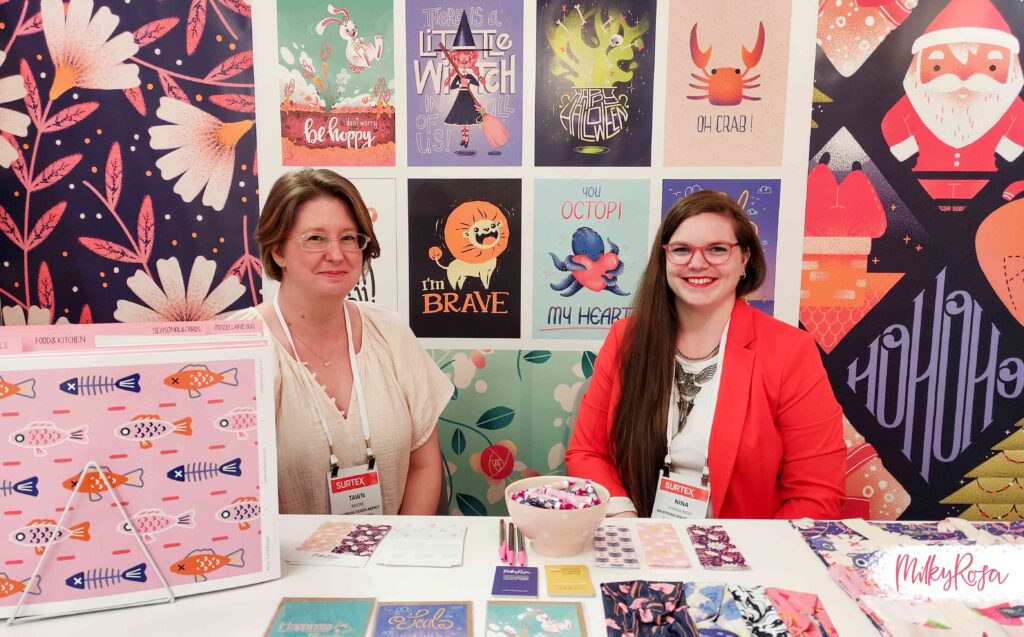
Get feedback
It’s easier to accept input from your accountability partner, in comparison to your friends and family, if they are non-creatives. Someone who is close to you might suggest the same thing, but it doesn’t have the same weight, as they probably can’t speak from experience themselves. But if your accountability partner suggests something you know it comes from a place of understanding and experience, which makes you trust them even more.
Related Article: Artist Mental Health
and the Importance of Community
Boost morale
You are there to pick each other up, boost your mood, or just listen. Especially if things don’t go your way or you have a slow period in your business, it can be hard to push through on your own.
If you don’t have many creative friends, it can be tough, because they might not really understand what you are going through. It can be super frustrating to have no one to talk to. Having an accountability partner is a big help in this regard because they’ve been in a similar situation before.
How to find the right accountability partner for yourself
It’s hard finding someone to connect with and develop a working relationship with — especially if that involves your business and sharing private information. What has worked best for me is talking to people with the same interests.
You could start a conversation in a Facebook group and see if someone else is willing to give it a try. Courses and challenges are a great place to find a partner because it’s easier to approach someone you have common ground with than a total stranger. I know it can be scary to put yourself out there, but it will be worth it.
I’ve had two accountability partners so far and found them via Sketch Design Repeat’s Pitch Your Portfolio and Artful Pricing & Negotiation courses.
Let’s take a look at what makes a great accountability partner:
Chemistry
There’s no need to meet with someone regularly who you don’t feel 100% comfortable with. So make sure the two of you hit it off from the start.
Similar goals
Pick someone who is aiming for similar goals, but… they don’t have to be the exact same! You want to look for someone who knows enough about your industry to help you but can still bring different strengths to the table and vice versa.
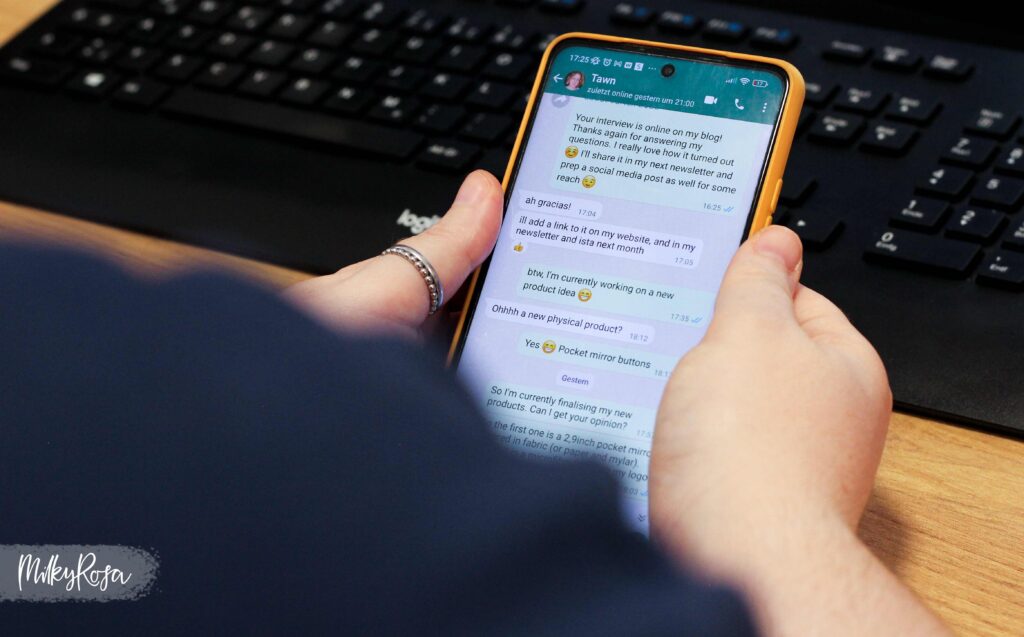
Trust
To actually move forward in your business, you have to be vulnerable with each other. There will come that time you have to share business insights. If you don’t trust your partner with this information, it just won’t work out. That’s why trust is the MOST important part of any accountability partnership. Your partner has to know your struggles and weaknesses. That’s when they can help you best.
Availability
How often do you want to meet? Are you both full-time or part-time artists? Do you intend to set up online meetings only? Do you even live within the same time zone? All these questions have to be answered to make your partnership work.
How to structure your meetings
What to talk about
Common topics include goals, dreams, fears, money, mindset, mental health, struggles, and wins. Whatever you feel is important for your business — bring it up with your accountability buddy. I’m sure they’ll have the same or similar thoughts.
When to meet
It’s important to see accountability meetings as a business commitment. That’s why regular meetings will be the most beneficial. You could do weekly or bi-monthly meetings, depending on your availability and personal schedule. Make sure you work something out that both of you can stick to in the long run!
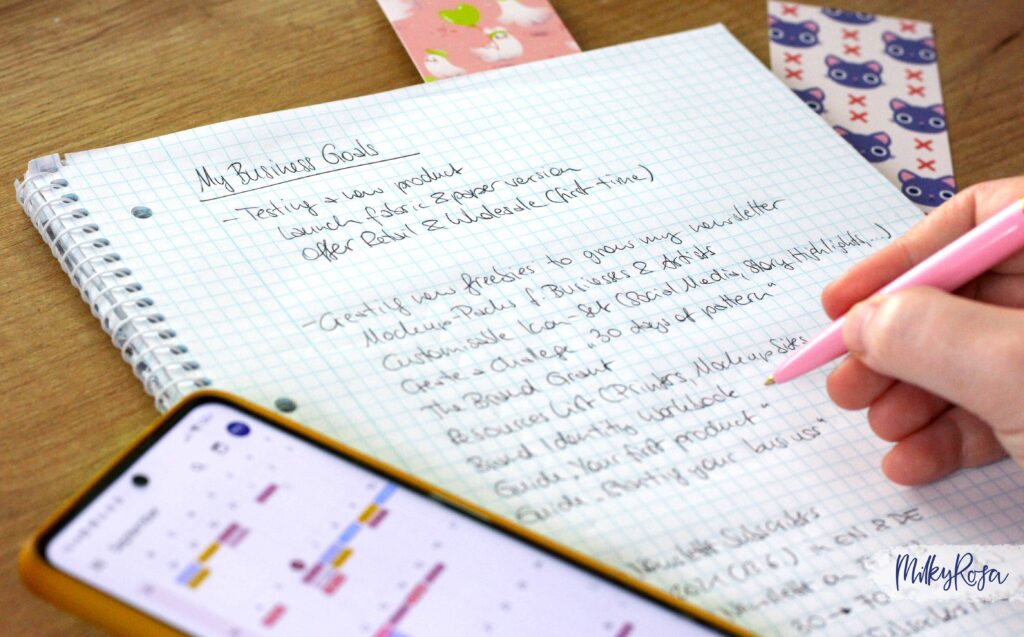
Meeting structure
Talk about what’s most important to you and what you want to get out of your regular meetings. Then allocate certain time slots for different topics. You can schedule your meetings per call or keep the same structure every time.
If you do the former, make sure to create a schedule to not lose track of time during your get-together. If your meetings are irregular, always pick a new date and time at the end of every session. Otherwise, you might not meet as regularly as intended.
Homework
Decide if you want to work on certain aspects between your meetings. It will help you to focus on what to work on. Next time you can review and get feedback from your accountability partner. You can also ask the other person to work on a small task, like writing down gaps they currently see in your portfolio.
Accountability Partner Tips
Pick a single person
Usually, working with a single person works best. I’ve been part of accountability groups, but I didn’t like them as much, because you can’t build the same kind of trust with many people as you would with just one person. Groups are great for general input but tend to have less engagement when it comes to sharing personal information.
Trial run
When first working with your accountability partner you should set a trial period and see if both of you are still happy to continue going. Only if that’s the case will it really be helpful to you and your partner for a long time.
It’s OK if it’s doesn’t work out
Not every accountability partnership will work out. There is no shame in giving it a try and realizing it’s not what you imagined. There are so many reasons why this might happen. Even though you are a great fit personally, you might not ever be available at the same time.
I believe honesty is best because there’s no need to waste each other’s time by staying simply out of obligation. Just give it another try with someone else or it might work out for the two of you at a later time.
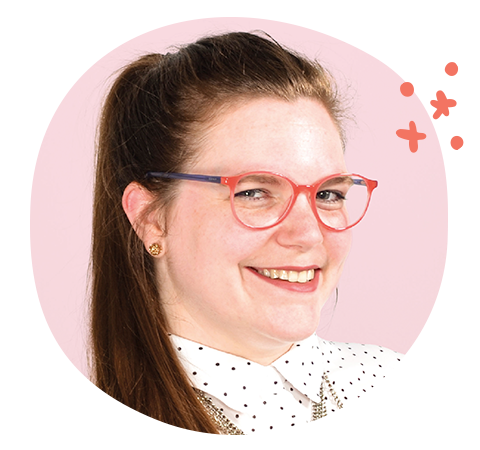
Written by Nina Schindlinger
Website: www.milkyrosa.com
Instagram: @milkyrosadesignagency
Class: Create Your First Product
Nina is the founder and creative director of MilkyRosa Design Agency. She specialises in branding and product design for companies that are young at heart. Her design style is bold, playful and charming, which she uses for her own line of products to make the world a fun and colourful place.